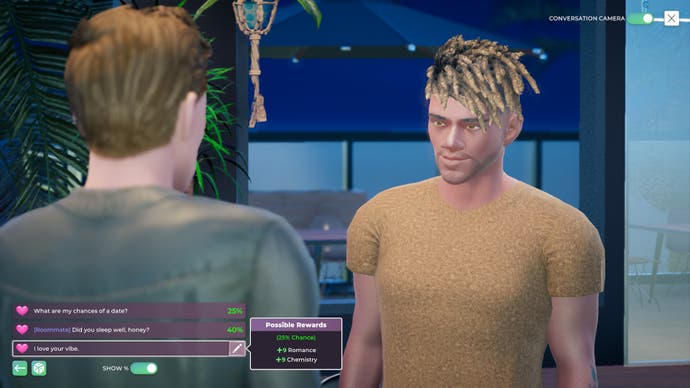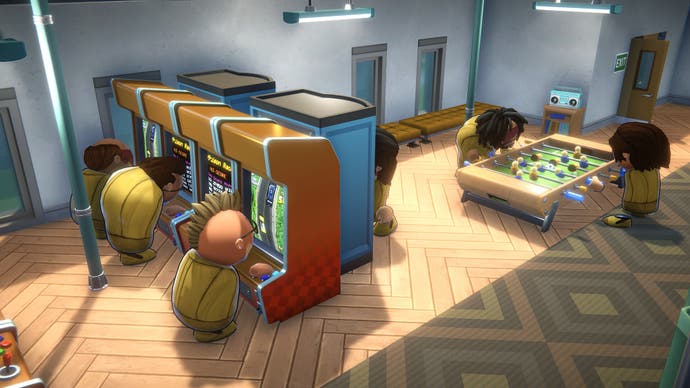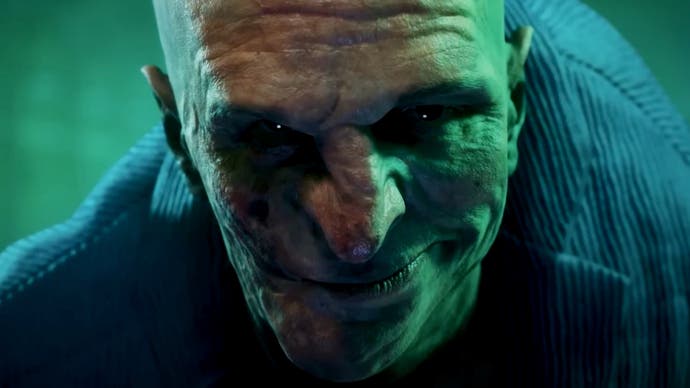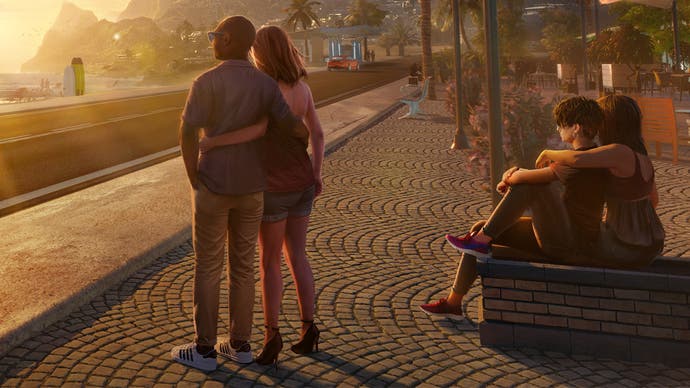Paradox must refocus to rebuild trust and survive, bosses say, after Life By You cancellation
"Release high quality games, because winner takes all."
"It is clear that we have made the wrong calls in several projects... and this must change." That was the message from Paradox CEO Fredrik Wester in the company's latest financial report in July following a string of high profile failures and project cancellations.
It was a candid statement from the CEO. And yet this level of transparency is what Paradox now says it needs, in order to reassure its community of players and refocus on what it does best: strategy games.
Over the past 12 months, Paradox has been rocked by a stream of development catastrophes. Last October, its strategy game The Lamplighters League was a $22m flop, while a month later it delayed DLC for Cities: Skylines 2 after that game launched with performance issues. Earlier this year, Paradox parted ways with Prison Architect 2 developer Double Eleven after nine years on the series; since continuing development, Paradox then indefinitely delayed the game. And in June, the company suddenly cancelled its Sims-like game Life By You and shut down the studio responsible.
So what exactly went wrong with these projects? And how is Paradox looking to put things right? Eurogamer had the opportunity to speak directly to Mattias Lilja, deputy CEO, and Henrik Fåhraeus, chief creative officer at a press event in London recently in order to find out more.
"I think we started the projects over-confidently and went in with too much investment early," Lilja tells me, discussing recent failures in general terms. "The teams were too big too soon in the projects, which meant we quite quickly ended up in a place where doing any type of shift would be very costly.
"We had invested a lot, do we really need to stop now, or do we go a bit longer and see what we can do? Can we salvage this? That combination of things made us go quite far in those projects before we started to realise [the issues]."
Paradox has had flops before, Lilja says, but their issues were easier to fix when projects were more aligned with the strategy genre: the company's "core".

Fåhraeus echoes Lilja when I ask his opinion. Sometimes you realise early on a concept is flawed, he says, but "you go on too far and hope that you fix it, or steer it in another direction than we thought originally". Then the team must work out how quickly fixes can be made, and how much it will cost.
Life By You is a key example of a game outside Paradox's core focus that would have required too long to fix, Lilja suggests. "We trusted the devs quite a lot," says Lilja. "We thought maybe another extension will get us where we're going and then finally realised... everything will be worse if we keep going, so we have to stop."
"A lot of the flaws were super clear," Fåhraeus adds, "and we saw the flaws individually... and then we got closer and closer to early access, trying to focus on fixing each individual problem, and then realising it's too late, we've not been seeing the forest here. There's no single thing here that can actually compete viably in terms of gameplay."
While Life By You had modability and plenty of customisation, ahead of early access its team realised it would take too long to add fun to the game, Fåhraeus says, and while everything is fixable, the time and financial costs have to be weighed up. "First impressions last, essentially," Fåhraeus adds. "Early access is, in some cases, very useful, but you have to have something that is super tight already."

Life By You would have had strong competition from EA's ongoing The Sims, as well as Krafton's forthcoming InZOI game. And while these didn't factor into the decision to cancel Life By You, it seems, the comparisons to them are clear. "It has to bring something new to the table that feels better than what's already out there," Fåhraeus says. So what was that new thing? "That's the problem," he acknowledges. "It would have taken too much time to make that happen."
At one point, Lilja admits Paradox's current status is "not a good place to be". So how does the company turn that around?
"What we have to do is start small, listen to the fans early, and most importantly, stay within our core," Lilja responds. "We do more extensive and earlier peer reviews to get honest feedback earlier.
"We do want to take risks. We want to try new things," he continues. "But we need to be much more disciplined about it than we've been." Discipline, in this instance, is about weighing up the risk with the size of investment. As Lilja puts it: "The further from the core, the lower the investment should be."
"We do want to take risks. We want to try new things. But we need to be much more disciplined about it than we've been."
That core is what Fåhraeus describes as "strategic simulations". "We are best at that," he says, "and it's up to us to stay ahead of the pack." Internally, the acronym ALICE is used for its projects: Agency, Living World, Inviting, Cerebral, Endless.
"[We must] give players what they want and give them the best player experience that we can give them, which means that we need to communicate with players as early as we can," Fåhraeus adds. "Getting our game directors and other people on the dev teams to engage with players, even when it feels a little uncomfortable."

Paradox does have its Tinto Talks to communicate with fans, and other similar avenues. "We have been doing things like that, but I think we've strayed, honestly, and we've gotten worse at it. We used to be very good at it," Fåhraeus admits.
"So: back on track. Remember that we are the players, we make the games we want to play, which means that we should also be making games that our target audience want to play".
Communication is key to keeping core fans happy, Liljas believes, which is why the company has still achieved success with the likes of Stellaris, the Victoria series, and Crusader Kings. "A game is a painting and we don't know when it's done," he says. "The fans can tell us what part of the game they want to develop, what part is less interesting to them."
Perhaps a more urgent question, though, is why should fans believe Paradox this time? This isn't the first instance the company has cancelled projects or suffered financially. How can Paradox rebuild trust from its fans?
"I understand that words feel hollow," Liljas says. "We can promise that we're going to do it and then we're going to show that we do it." In other words: actions speak louder than words.
"When it's inside the core, even if we make a mistake or we launch something that may be not up to par, we are generally able to fix it over time and we don't stop... we're not abandoning those projects. We're going to keep working. And when we have games that do work, we show that we understand what people want and we can absolutely give that to them."
"I understand that words feel hollow. We can promise that we're going to do it and then we're going to show that we do it."
Take Cities: Skylines 2, which was criticised at launch for its poor performance - something Paradox says it has been working to improve ever since. Next for the game is the asset editor, as the development team looks to prioritise the modding community - not to place work on the community, but invite them into the game. "Modability and creativity and players participating in the creation of the game is key to our whole philosophy," Fåhraeus says. "I don't think that's new. It's a return to form, actually, and I hope it will be perceived that way. That's how we should operate."
Prison Architect 2 is also still in development, despite an indefinite delay after Paradox parted ways with the original studio. "It's not going to be cancelled," Fåhraeus assures. "It's a case where the game is fun. It's been fun for a while. But it has UI and bug issues... and we want to make sure we meet player expectations in those regards. This is a matter of giving it more time in the oven and not releasing something that is perceived as being unpolished."
There's also Vampire: The Masquerade - Bloodlines 2, a game developed by The Chinese Room and published by Paradox. This is certainly a game outside the company's core, but Fåhraeus explains this is part of an older strategy to expand into new genres. "Bloodlines is probably the last to come from that strategy," he says. "It's quite far from our core area, it's an outlier... but again, we want to release the best game we can. It's a tall order to measure up to a cult classic."

Changes have been made internally too, Lilja says. Back in 2021, Eurogamer reported on Paradox's internal "culture of silence", accusations of "bullying and gender discrimination" from a leaked internal survey, and sexual harassment from one senior member of staff.
Now the company runs regular internal surveys to allow staff to "speak their mind anonymously", Lilja says, with an aim to improve transparency. "Mostly we talk about the problems we do have, whether they are with games or with certain suppression techniques, bullying, or other things," Lilja says. "We call a spade a spade, and we say that we're going to fix it if it's not good... We've actually made good headway on these things."
The internal strategy here is similar to its development strategy, in the need to catch issues early on to correct them. "We've gone into a pretty good cycle on that," Lilja continues. "People are seeing that and reporting that they feel they don't see it as much, and they feel more confident on how we handle things." The company is also working on gender parity for salary, Lija says, as well as mandatory monthly training on preventing bullying and harassment.
Game cancellations and layoffs aren't unique to Paradox, but the company's employees and fans have faced a brutal year amidst a turbulent time for the wider video games industry. Still, Lilja says he is positive about the company's future. "I have full confidence this will also pass," he says. "A number of things happen at once. People feel squeezed. They don't have as much money. The fans are like 'I'm trusting you now with the money I have, I don't have a lot of it, so don't mess this up', which is a sensible way to see things. On the other hand, companies are often over-invested in things, they're not turning out to be so good." For Paradox, Lilja reiterates, this is most obvious when the company makes games outside of its core, which is a key reason it's looking to focus back.

AI is another major topic across the industry, though Fåhraeus doesn't believe it would have helped with any of the cancellations. Paradox uses AI now for ideation and concepting, he says, but he still appreciates the value of human created content over generative AI. Lilja agrees that AI can be a useful tool for prototyping, but "it's not a big part of the games... it's going to be a lot of human hands on whatever ends up in the games". He continues: "Even if you steer clear of the philosophical aspects of it, the practicality is that it's not particularly impactful right now." Paradox tries to "stay clear of the dystopian idea of it and the utopian idea of it", he concludes.
Paradox, then, appears to be making the right noises to appease fans: transparent communication and focusing on the strategy games it does best. Internal culture is also being improved, despite issues across the wider industry resulting in mass layoffs. There are other long term concerns though, like the rising costs of development, the length of time for development, and competing for time with other popular games. To combat this, Fåhraeus again uses the cancelled Life By You as an example.
"Part of the calculation there was, versus The Sims 4, how many players will actually take that step? How much of that audience will move over and try it out?" he said. "It's competing for players' time. It's getting more brutal all the time. Established brands have it easier. Breaking in is getting harder. I think how we deal with that is release high quality games, because winner takes all.
"You can't release something that isn't quite there, it's going to fade into noise. So that's the learning: you have to release high quality games."
Paradox is capable of doing just that - but now it really needs to prove it once again. As the pair state, actions speak louder than words. Now, it needs to ensure it keeps making the right calls and not the wrong ones.


